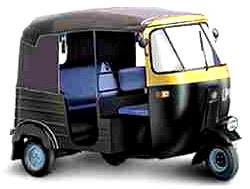The streets are bustling with motorized rickshaws or tuk tuks, yellow taxis, a nd lots of donkey or horse drawn flat-bed carts. Over 200 vehicles have been carjacked in the past year, so NGOs no longer drive their signature shiny white land rovers or
nd lots of donkey or horse drawn flat-bed carts. Over 200 vehicles have been carjacked in the past year, so NGOs no longer drive their signature shiny white land rovers or
It has been cold at night, but the season is due to change in mid-February. Lizards, birds, and ants abound. Cats skirt across backyards belonging to everyone and no one. Hard to explain how such wild cats can be so tame and accustomed to humans. On my way to what has been a long series of meetings with international and local organizations, I met a tiny kitten standing guard in the entrance to the OCHA building. I walked up to it and it did not flinch. (Does he belong to you?) I motioned to the human guard by his side. “No, he is wild, just push him aside,” he replied.
These are not the feral cats I once uncovered under my mother’s house. Maybe the gentle desert breeze brings out another side.
SWEATING DUSTAnything that stands still for more than a few hours here is bound to be covered in a fine film of dust. I mean that quite universally. I learned my lesson when I reached for a Kleenex to cover my sneeze and got a nose full of sand dust that had delicately and invisibly settled on the waiting facial tissue.
That reality may explain why nothing seems to stay in one place for very long here. The political and humanitarian crisis shifts so regularly that it makes it difficult to know if today’s project design will still be valid tomorrow. (A scary prospect when you are charged with designing a regional project). One overarching reality is that areas that are quiet today may become volatile no go zones tomorrow; so, we plan for instability while toiling for sustainable, lasting, foundational peace.
When I come home and get ready for bed, I find that my t-shirt is invariably covered in brown dust, but only on the inside against my skin. I know I am breathing dust. But am I sweating it as well?
A BOY NAMED SKYSitting under a cloudless sky on a very windy but lazy Friday afternoon, reading my Darfur book, two boys around 8 or 9 years of age walk up to greet me. They don’t actually say anything. They just stand there trying not to stare at me perched precariously on the edge of the cement block near my office. I pretend not to see them so that I can finish the paragraph. The sun is really bright today and I am squinting to read from the pages of this paperback by Alex De Waal. Finally I look up and ask the boy “maa ismuka?’ The boy motions that he cannot speak, so I ask again in sign language. I point at him and then move two fingers across my chest. (What is your name?) He smiles, moves two fingers across his chest and points upward (My name is sky).
Friday is a high holy day when everything is closed. Last week the Sudanese government mandated that Friday and Saturday be enforced as the official weekend. The work week is from Sunday to Thursday. This has changed from time to time with combinations of half days and reduced hours and it will most likely change again.
The international community here - organizations and non-governmental organizations alike - generally adhere to this schedule as well. It would be a cardinal sin to disturb someone on a Friday here. Saturdays are generally used to catch up with report writing. But since I arrived in
No comments:
Post a Comment